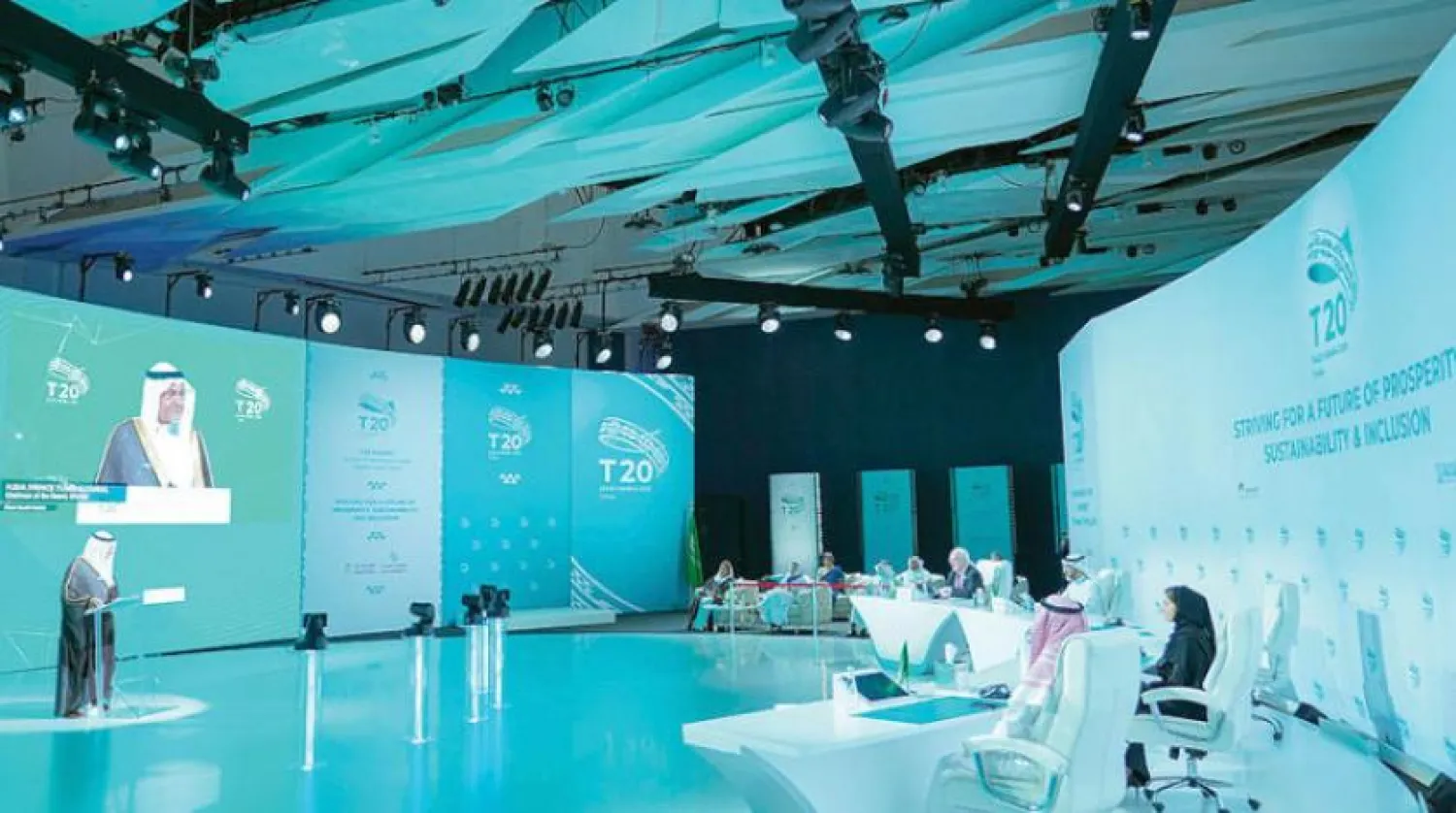The Think 20 summit (T20), which provides the intellectual backbone of the Group of Twenty international forum (G20), on Saturday revealed that Saudi Arabia ranked second in terms of countries which provided the largest corpus of research, paperwork and proposals at the G20.
Saudi Arabia convened the first day of the T20 on Saturday, with panelists and speakers calling for nations to work together around the world to help solve the unprecedented crisis caused by the coronavirus pandemic.
In his remarks on the T20 sidelines, Prince Turki al-Faisal, chairman of the board of the King Faisal Center for Research and Islamic Studies, confirmed that Saudi Arabia achieved second place with the quality and quantity of research it presented to G20 leaders this year.
He said that the Kingdom’s high ranking proves the ability of Saudi nationals, both male and female, to offer humanity ideas that service everyone.
Prince Turki stressed that G20 and T20 works were carried out under unprecedented challenges brought about by the coronavirus pandemic. He, however, said that the T20 summit alongside other G20 forums, held under Saudi presidency, have been a success.
More so, Prince Turki highlighted that the T20 summit was attended by more than 60 countries and over 150 global think tanks.
Fahad Alturki, the vice president of research at King Abdullah Petroleum Studies and Research Center (KAPSARC), and chair of T20, noted that it was a first for Saudi Arabia to rank second internationally in providing research for the G20.
Alturki said that the participation of local and gulf centers reflected the region’s vision.
Recommendations in the T20 communiqué will be presented on the final day of the meeting on Sunday. The document comprises of 32 policy proposals across seven categories for consideration by G20 leaders.
It will also be presented before the G20 leaders’ summit on Nov. 21-22.










